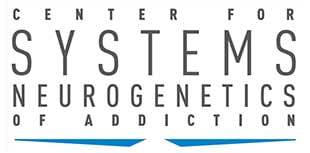Research Grants
Overview
NA Pilot Project Program will provide funds and support to scientists seeking to forge new paths of research in addiction biology using the powerful suite of genetic resources available through the CSNA. Projects will be focused and guided by the overarching objectives of the CSNA, emphasizing technological innovation and a holistic and integrated approach to identifying the mechanisms for biobehavioral addiction risk.
Pilot project investigators will have access to all the technological and intellectual resources of the Center as well as the unparalleled mouse genetic and genomic resources offered at JAX. These include expertise and resources for mouse model development, characterization of genetic diversity, neurobehavioral phenotyping and a host of other techniques for the manipulation and evaluation of the mouse. Projects with a translational focus will benefit from the advanced facilities and associated expertise in human genetics and genomics at The Jackson Laboratory for Genomic Medicine in Farmington, CT
Pilot project funds are awarded through a competitive program that issues a Funding Opportunity Announcement once per year. We encourage applications from promising new investigators so that they can generate the data and gain the expertise necessary to support competitive funding applications and a transition to a career in addiction biology. We also encourage applications from established investigators who may benefit from the application of mouse genetic techniques to existing research programs.
Projects will be chosen based on the potential to advance the field of addiction biology and to lead to successful grant applications. Special attention will be given to applications that propose work in the following categories:
- Cross-species translational studies. We will solicit pilot projects that emphasize bi-directional mouse-human translational genetics. These projects will engage human geneticists who have discovered allelic variation in humans that they wish to model in mouse genetic resources. Other pilots will extend translation from mouse genes and pathways to human variation.
- Risk predictors. Pilot projects that assess the impact of genetic variation on other addiction-related phenotypes other than those already included in the CSNA, or the interaction of genetic variation on known addiction-related genes, will be of tremendous interest. Pilots will typically generate evidence for heritable variation as a prelude to additional mapping studies.
- Molecular mechanisms of addiction. Pilots that can make use of genome sequence databases, biobank samples or de novo data collection through the CSNA Cores will enable identification and characterization of additional molecular mechanisms of addiction.
- Drug classes other than cocaine. We are interested in pilot projects that have the potential to extend of our genetic findings to additional drug classes. Such projects will typically establish heritable variation in addiction to these substances.
- New computational methods. We seek computational pilot projects that promise to deliver new insights into the systems genetics of addiction, rather than those that are restricted to methodological development. We will support computational pilot studies in statistical genetics, functional genomics, data integration and sequence analysis.
